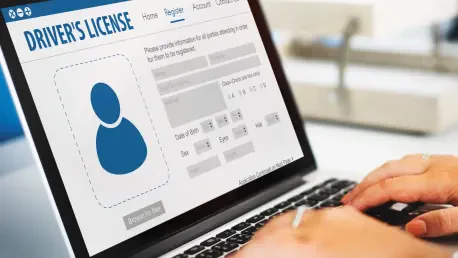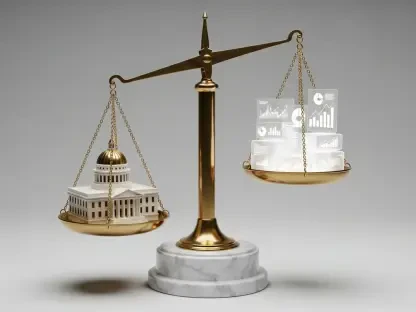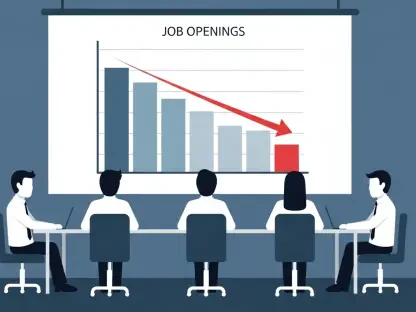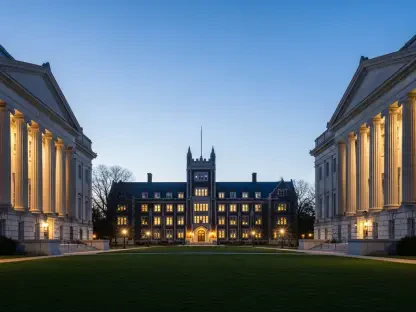As we dive into the complex world of data privacy and government initiatives, I’m thrilled to sit down with Donald Gainsborough, a political savant and leader at Government Curated, whose deep expertise in policy and legislation offers invaluable insights. Today, we’re exploring the Department of Homeland Security’s recent push to integrate state driver’s license data into the SAVE system for citizenship verification, unpacking the implications for privacy, voter access, and public trust. Our conversation touches on the motivations behind this federal initiative, the sensitive nature of the data involved, potential errors in the system, and the specific dynamics of Texas’s response to these efforts.
Can you walk us through the Department of Homeland Security’s goal in adding state driver’s license data to the SAVE system, and how this ties into their broader mission of verifying citizenship status?
Certainly, Javier. The Department of Homeland Security, or DHS, is aiming to expand the Systematic Alien Verification for Entitlements system—known as SAVE—into a comprehensive tool for checking citizenship status across multiple contexts. By incorporating state driver’s license data, they want to create a one-stop shop that election officials and other agencies can use to verify whether individuals on voter rolls or applying for benefits are citizens. The broader mission here is to enhance immigration enforcement, prevent public benefit fraud, and ensure the integrity of voter rolls. DHS argues that driver’s license data, being a widely used form of ID, will improve the accuracy and efficiency of these checks by linking it with other identifiers like Social Security numbers. It’s part of a larger Trump administration push to pool data from diverse sources, though it raises significant questions about scope and oversight.
What kinds of sensitive information are typically found in state driver’s license databases, and why does sharing this data spark privacy concerns?
Driver’s license databases are treasure troves of personal information. They often include details like a person’s full name, date of birth, home address, email, sometimes employment information, and even biometrics such as fingerprints or facial recognition data. Some states also store passport numbers or other identifiers. The privacy concerns come from the sheer volume and sensitivity of this data. If it’s mishandled or accessed by unauthorized parties, it could be used for identity theft, surveillance, or other abuses. Beyond that, when this data is fed into a federal system like SAVE, there’s a risk of it being shared across agencies for purposes beyond the original intent—like immigration enforcement or national security investigations—which can feel like overreach to many people worried about their civil liberties.
How did Texas officials respond when DHS approached them about a pilot program to share driver’s license data earlier this year?
From what’s been made public, DHS reached out to the Texas Department of Public Safety in June to discuss a pilot program for integrating the state’s driver’s license data into SAVE. Initial communications suggest Texas officials were open to dialogue—one supervisor even expressed a willingness to support the tool. However, there’s no clear evidence that Texas actually moved forward with sharing data. The Department of Public Safety later stated they don’t have any ongoing projects with DHS on this front and haven’t been asked to provide voter-related driver records. It’s possible Texas hesitated due to privacy concerns, legal constraints, or simply a lack of clarity on how the data would be used and protected. Without more transparency, we can only speculate on their final stance.
There’s concern that using driver’s license numbers in the SAVE system might lead to errors, such as flagging citizens as noncitizens. Can you explain how these mistakes could occur?
Absolutely, this is a real risk. Driver’s license data isn’t foolproof. For one, license numbers can be reused by states when someone moves or a record expires, which can create confusion in a system like SAVE if it’s not updated in real time. People might also hold licenses in multiple states, leading to duplicate or conflicting records. Additionally, if SAVE isn’t linked to live state databases, the information could be outdated—someone might have naturalized as a citizen, but the system might not reflect that. These errors could wrongly flag eligible voters as noncitizens, potentially blocking them from casting ballots or triggering unnecessary investigations. It’s not just a technical glitch; it erodes public trust in both the voting process and government systems.
Texas recently ran its entire voter roll through the SAVE system. Can you share what the results showed and any concerns about their accuracy?
Yes, the Texas Secretary of State announced in October that they checked the state’s voter roll using SAVE, relying on Social Security numbers for the verification. The results flagged about 2,724 voters as potential noncitizens, which is roughly 0.015% of the total voter roll—a very small fraction. However, there are serious concerns about accuracy. For instance, in Travis County, the voter registration director noted that around 25% of the flagged voters in their area had already provided proof of citizenship when registering. This suggests the SAVE data might be incomplete or incorrect, raising fears that legitimate voters could be improperly removed from rolls or disenfranchised. It highlights the stakes of relying on automated systems without robust safeguards.
Given the worries from local officials about the SAVE system’s reliability, how do you think this could impact public trust in elections and data-sharing initiatives?
When local officials, like those in Travis County, publicly question the reliability of a system like SAVE, it sends a powerful message to the public that the process might not be airtight. If citizens hear that even a small number of eligible voters are being wrongly flagged as noncitizens, it can sow doubt about the fairness of elections. People might wonder, “Could this happen to me?” or “Is the government overstepping?” This distrust can extend to broader data-sharing initiatives, making individuals wary of providing personal information to state or federal agencies. Without clear communication and proven accuracy, these programs risk alienating the very people they’re meant to serve, undermining confidence in both democratic processes and government intentions.
Looking ahead, what is your forecast for the future of federal data-sharing systems like SAVE in balancing security needs with privacy protections?
I think we’re at a crossroads with systems like SAVE. On one hand, the push for security—whether it’s election integrity or immigration enforcement—will likely drive more data integration as technology makes it easier to link disparate sources. We’ll probably see continued expansion of these systems, with more states and agencies being pressured to participate. On the other hand, privacy protections are lagging, and public backlash, along with legal challenges like those citing the Privacy Act, could force a reckoning. My forecast is that without stronger, enforceable safeguards—think mandatory data minimization, strict use limitations, and transparent oversight—these systems risk becoming tools of overreach rather than precision. The balance hinges on whether policymakers prioritize civil liberties as much as they do security, and I’m cautiously skeptical that will happen without significant public pressure.









